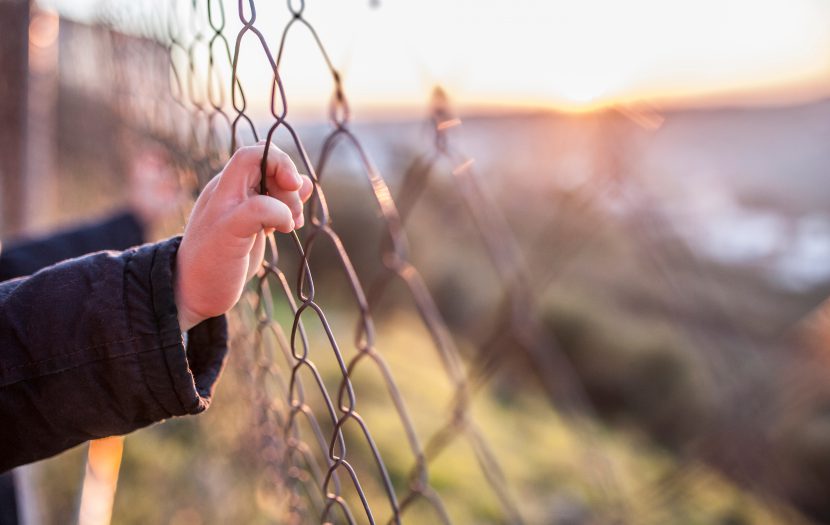Spain receives a great number of unaccompanied minors due to its geographical situation. However, many of these minors do not fully integrate into society before turning eighteen years old, which is extremely important because they are no longer under the guardianship of the state once they reach that age. Most of them reach the majority of age without having been able to get a job and not being emancipated, which leads to their isolation from society. Their legal status also changes, and they start to be considered irregular citizens.
An understanding of integration

Integration involves immigrants’ adaptation to another way of life, without losing their own culture and identity (ECRE, 2002). It is a long-term and multi-dimensional process in the sense that it implies the participation of such an individual in all fields of society (cultural, legal, economic, social and educational). It requires efforts by both the receiving society and the immigrants arriving there; states shall implement policies to encourage the integration of immigrants into society (ECRE, 2002; Spanish Immigration Act, 2009).
Social integration is not a right as such. However, the fulfillment of essential rights (such as the right to education, the right to health and the right to an adequate standard of living, among others) need to be fulfilled to ensure that children are successfully integrated into society.
The profile of unaccompanied minors in Spain
The phenomenon of unaccompanied minors in Spain has important social repercussions (Hernández, 2007). Spain is one of the European countries that receives a great number of unaccompanied minors because of the proximity of its southern cities (especially Ceuta and Melilla) and the Canary Islands with the African continent, being a major point of entry for migratory flows (Collantes, 2021).
In 2020, most of these unaccompanied minors were male (3.228, being 97.61%) and just 79 girls were identified (2.38%). Most of them arrived from Morocco (42.12%), followed by Mali, Algeria, Senegal, the Republic of Guinea and Gambia (Memoria del Gobierno, 2020). In fact, in 2020, around 3.307 unaccompanied minors arrived at the coasts of Spain in small boats and unstable vessels (which is 15.10% more than in the previous year) (Memoria del Gobierno, 2020).
Unsuccessful integration of unaccompanied minors into Spanish society
In Spain, the social integration of these minors is still a challenge (De Ussel, 2010). There are several indicators that show that unaccompanied children are not fully integrated into Spanish society. One clear indicator is the stigmatization of unaccompanied minors by some parts of society (Monteverde, 2013). They are often subjected to discrimination and xenophobia (STATISTA, 2022).
The clear consequence of their unsuccessful integration into society is the major challenges they encounter when they turn eighteen years old and are no longer under the guardianship of the state. Many of them reach the age of majority without having a residence permit and thus not being able to ask for a work permit, which are necessary requirements for the process of social integration (Pelayo, 2010).

Some of the weaknesses that can still be found are the following: inadequate level of Spanish, the age assessment procedures used, the delay in the Spanish administrative system, the lack of educational policies directly addressed to unaccompanied minors, the poor conditions of the protection centers and the scarcity of resources devoted to these minors (Fundación Raíces, 2017).
Possible solutions to the current problem
A different approach to age assessment
The age assessment is extremely important to guarantee the integration of unaccompanied minors in society because if their age is falsely assessed and it is considered that the minors are over eighteen years old, they will no longer be under the guardianship of the state and will be completely excluded from society (Aragoneses and Zuppiroli, 2018).
Therefore, age assessments should only be done in those cases in which there is a clear doubt about the age of the unaccompanied minor in question, and in the cases in which the minor does not have any other document that proves its age. A change in the Spanish legislative framework of unaccompanied minors is necessary to include other methods that fully respect the rights of unaccompanied minors, as well as their physical and psychological integrity (CRC, 2010).
Improvement of the Spanish administrative system
The regularization of the unaccompanied minors’ documentation is a vital factor for their social integration into society. This delay in processing their documentation constitutes a weakness of the current Spanish administrative legal system, prevents many unaccompanied minors from being integrated into society and makes them highly vulnerable (Fanjul, Gálvaez, Zuppiroli, 2021).Therefore, undocumented unaccompanied minors have to face many hurdles in accessing other rights, mainly their right to education and health.
Decisions about the future of unaccompanied minors should be taken as fast as possible and, to do that, the formalization of the documents of those unaccompanied minors who are in very vulnerable situations should be prioritized over other documents whose formalization is not that urgent. Spain has to comply with its legal obligation to accept the guardianship of the minor from the moment that it has been examined that such a minor is in a situation of neglect, as it is stated in Article 172 Spanish Civil Code. More coordination between the Autonomous communities and the central Spanish government, as well as among the Autonomous communities is required (Lorca, 2022).
A different approach to education
Education is one of the most powerful tools to guarantee that unaccompanied minors become fully integrated into society since it has an impact on their socio-cultural and economic integration (ECRE, 2022). Nevertheless, in Spain, unaccompanied minors still face some hurdles as there are no educational policies which are directly adapted to unaccompanied minors, their access to the job market and the problem of social integration (Aragoneses and Zuppiroli, 2018).
Therefore, it is essential to consider the implementation of training programs addressed to teachers so that alternative methodologies are developed to address the special needs of immigrant children, focusing on the immigrants’ language problems, their personal development in the host society, and their guidance towards the job market (Iglesias, 2022). Schools should provide psychological support to children since many of them suffer from trauma and stress, as well as intercultural training aimed at raising awareness of the existence of different cultures and the importance of respecting them (Hernández, 2007).
Improvement of the conditions of the protection centers
Many centers have an excessive number of unaccompanied minors which prevents them from having proper attention and meeting their necessities and rights (AI,2021). The conditions and treatment of the minors in the protection centers need to improve: individual programs should be developed to ensure the integration of unaccompanied minors on a case-by-case basis to address their necessities and take into account their age in order to prepare them for the job market, especially if they are around sixteen years of age. Finally, more resources need to be allocated from the State to improve the expertise and knowledge of the professionals that deal with unaccompanied minors so that their practices respect children’s rights in all cases.
Humanium’s support for the social integration of unaccompanied minors
It is thus essential to implement effective measures to guarantee that unaccompanied minors become integrated into Spanish society, by helping them to find a job, have a residence permit and become nationals so that they can be socially protected and not be completely excluded when they turn eighteen years old.

At Humanium, we support the social integration of unaccompanied minors in society. Humanium works to create a world where all children’s rights that enable integration are respected. If you want to support us in the implementation of children’s rights worldwide, subscribe to our newsletter or become a member or a volunteer. You can also consider sponsoring a child or making a donation. Join us in taking action for children’s rights worldwide!
Written by Marina Pérez Ortega
Bibliography:
Ager Alastair and Strang Alison (2008). ‘Understanding Integration: A Conceptual Framework’ Journal of Refugee Studies; retrieved from https://www.researchgate.net/publication/31174952_Understanding_Integration_A_Conceptual_Framework; accessed on September 9, 2022.
Amnistia Internacional (2021), ‘Canarias: Más de Mil Menores No Acompañados En Riesgo de Acabar Viviendo En La Calle En Un Limbo Sin Derechos’; retrieved from https://www.es.amnesty.org/en-que-estamos/noticias/noticia/articulo/canarias-mas-de-mil-menores-no-acompanados-en-riesgo-de-acabar-viviendo-en-la-calle-en-un-limbo-sin-derechos/; accessed on September 10, 2022.
Amnistia Internacional (2021) ‘Problemas a Los Que Se Enfrentan Los MENAS. Desmontando Bulos’; retrieved from https://www.es.amnesty.org/en-que-estamos/blog/historia/articulo/menas-desmontando-bulos/; accessed on September 9, 2022.
Aragoneses Perazzo Catalina and Zuppiroli Jennifer (2018), ‘Los Más Solos’. Save the Children España; retrieved from https://www.savethechildren.es/sites/default/files/imce/los_mas_solos_vok.pdf; accessed on September 6, 2022.
Collantes Sara (2021) ‘Niños, Extranjeros y Solos En España: Cuando La Desprotección Se Multiplica Por Tres’ UNICEF, retrieved from https://www.unicef.es/blog/ninos-extranjeros-y-solos-en-espana-cuando-la-desproteccion-se-multiplica; accessed on September 3, 2022.
Comité de los Derechos del Niño (2010), ‘Examen de Los Informes Presentados Por Los Estados Parte En Virtud Del Artículo 44 de La Convención’. CRC/C/ESP/CO/3-4; retrieved from https://www.refworld.org.es/country,COI,,,ESP,,506962e62,0.html; accessed on September 8, 2022
De Ussel Julio Iglesias (2010), ‘Las Políticas de Integración Social de Los Inmigrantes En Las Comunidades Autónomas Españolas’; retrieved from https://www.fbbva.es/wp-content/uploads/2017/05/dat/DE_2010_politicas_integracion.pdf; accessed on September 4, 2022.
European Council on Refugees and Exiles (ECRE) (2002) ‘Position on the Integration of Refugees in Europe’, vol 1; retrieved from https://ecre.org/wp-content/uploads/2016/07/ECRE-Position-on-the-Integration-of-Refugees-in-Europe_December-2002.pdf; accessed on September 7, 2022.
Fanjul Gonzalo, Gálvaez Ismael and Zuppiroli Jennifer (2021) ‘Crecer Sin Papeles En España’ Por Causa, SavetheChildren; retrieved from https://porcausa.org/wp-content/uploads/2021/02/Infancia_sin_papeles_en_Espana.pdf; accessed on September 9, 2022.
Fiscalia general del estado Memoria del Gobierno (2020), ‘Capitulo 4:” Materia de Extranjería: Menores Extranjeros No Acompañados”, retrieved from https://www.fiscal.es/memorias/memoria2021/FISCALIA_SITE/capitulo_III/cap_III_4_6.html; accessed on September 3, 2022.
Fundación Raíces (2017) ‘Informe Alternativo Al V Y Vi Informe De Aplicación De La Convención Sobre Los Derechos Del Niño De Naciones Unidas Y Sus Protocolos Facultativos Presentado Por España’; retrieved from https://tbinternet.ohchr.org/Treaties/CRC/Shared%20Documents/ESP/INT_CRC_NGO_ESP_27130_S.pdf, accessed on September 3, 2022.
Hernández Senovilla Daniel (2007), Situación y Tratamiento de Los Menores Extranjeros No Acompañados En Europa. Un Estudio Comparado de 6 Países: Alemania, Bélgica, España, Francia, Italia y Reino Unido. Resumen de Resultados; retrieved from https://www.ikuspegi.eus/documentos/documentos_externos/2007_Oijj_SITUACION_Y_TRATAMIENTO_DE_LOS_MENORES_EXTRANJEROS_NO_ACOMPANADOS_EN_EUROPA.pdf; accessed on September 10, 2022.
Iglesias Juan (2022), ‘Caminos de Convivencia: Claves Para Una Adecuada Integración Social y Convivencia Intercultural En Contextos Locales’. Ministerio de Inclusión, Seguridad Social y Migraciones; retrieved from https://www.inclusion.gob.es/oberaxe/ficheros/documentos/GUIA_CAMINOS_DE_CONVIVENCIA.pdfaccessedon September 11, 2022.
Lorca Alfonso Vicente (2022), ‘Revisión Jurídica de Los Menores Extranjeros No Acompañados En El Espacio Europeo. Análisis de La Situación En España’ EUNOMÍA. Revista en Cultura de la Legalidad; retrieved from https://e-revistas.uc3m.es/index.php/EUNOM/article/view/6809/5363; accessed on September 14, 2022.
Pelayo Uría Ana María (2010), ‘Menores No Acompañados En España. La Administración, Con Sus Malas Prácticas, Continúa Vulnerando Sus Derechos Como Menores’ Educación social: revista de intervención socioeducativa; retrieved from https://redined.educacion.gob.es/xmlui/bitstream/handle/11162/28906/00920103010437.pdf?sequence=1&isAllowed=y ; accessed on September 10, 2022.
Spanish Immigration Act 2009; retrieved from https://www.migrar.org › download › recurso; accessed on September 8, 2022.
STATISTA (2022) ‘Unaccompanied Foreign Minors in Spain – Statistics & Facts’ Statista Research Department; retrieved from https://www.statista.com/topics/8907/unaccompanied-foreign-minors-in-spain/#topicHeader__wrapper; accessed on September 5, 2022.
UN Committee on the Protection of the Rights of All Migrant Workers and Members of Their Families (CMW) (2017) ‘Joint general comment No. 4 (2017) of the Committee on the Protection of the Rights of All Migrant Workers and Members of Their Families and No. 23 of the Committee on the Rights of the Child on State obligations regarding the human rights of children in the context of international migration in countries of origin, transit, destination and return’ CMW/C/GC/4-CRC/C/GC/23; retrieved from https://www.refworld.org/docid/5a12942a2b.html ; accessed on September 8, 2022.


